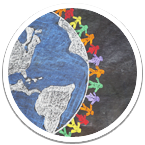Family reunification
The family is an important source of social support. Families and relatives living in the same country promote well-being and integration. It has been found that separation from one’s family and difficulties related to family reunification are the most important factors hampering the integration of refugees.
Family reunification means that family members of a person residing legally in Finland can apply for a residence permit in Finland on the basis of family ties. A family member residing in Finland may have moved to Finland to work or to study, or they may have received asylum in Finland. he Finnish Immigration Service handles the processing of family reunification matters.
Finnish Immigration Service information page on family reunification (MIGRI)
Moving to Finland to be with a family member (MIGRI)
Living away from one’s family has an impact on integration and wellbeing
Being separated from their family may mean that the immigrant is concerned about a family member living in the midst of conflict. According to international studies, refugees who have arrived without their other family members have constant concerns about family members left in an unsafe situation in their home country.
Concern about family members may cause mental health symptoms and hinder concentration and language learning, which in turn affects areas such as employment. Living away from their family may also affect the immigrant's finances, as money may be sent to close relatives who have remained in their home country and the immigrant’s own needs may be neglected.
Those who are separated from their family more often have
- lower language skills
- difficulties in finding employment
- problems with attending training
- symptoms of severe depression and anxiety
- sleeping difficulties
For example, the Migrant Health and Wellbeing Study found that severe symptoms of depression and anxiety, sleep difficulties and experiences of loneliness among Kurdish people living away from their family members are clearly more common compared to Kurds whose childhood family lives in Finland.
Migrant Health and Wellbeing Study (Maamu)
The right to family life is a human right
The right to family life is protected by Finnish law and international human rights treaties. The EU family reunification directive guarantees the right to family reunification.
In recent years, Finland has tightened the criteria for family reunification in different ways. Studies indicate that tight family reunification criteria have serious social, health and economic consequences for refugees and their families.
The Government Programme states that problems related to family reunification will be investigated. For example, there will be an end to application of the income requirement to minors seeking family reunification who have received a residence permit based on need for international protection.




